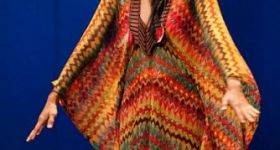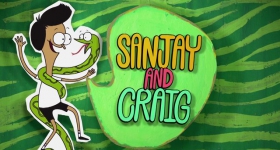Photo by Keith Allison/Flickr.
By Ling Woo Liu
Admittedly, I’m not a football fan. Now that it’s September, my
husband is clocking more and more hours glued to Sunday Night, Monday Night and,
alas, even Thursday Night Football. Though he tries to get me excited about
Kaepernick’s speed or the latest on RG3’s knee injury, the game just isn’t a
fit for me.
But even someone as green as me to the pigskin game paused when
I heard that Washington D.C.’s football team has yet to change its name from
“Redskins” to something more appropriate for the 21st — or even 20th
— century.
Today, when Washington faces off with the Oakland Raiders at
O.co Coliseum, I hope that San Francisco Bay Area fans won’t just be rooting
for a silver-and-black win. The Bay
Area’s ethnic kaleidoscope has made it an early adopter of progressive
movements, including the first ethnic studies departments in the country. The
region also has a track record of agitating for precisely these kinds of name
changes. The Golden State Warriors were previously the Philadelphia Warriors,
complete with a logo
of a grinning, shirtless man with a feather in his hair, until public pressure
convinced them to adopt a new logo and mascot in 1971. Remember the Stanford
Indians? After Native American students launched a petition in 1972, officials
at the Farm officially dropped its mascot (and caricature) in favor of its
current nickname, the Cardinal (though old habits die hard). And in 1989, San Francisco’s Lowell
High School dropped its “Indians” name in favor of, oddly enough, The
Cardinals.
Elsewhere in the country, there have been similar name changes,
some of them shockingly recent. In 1980, Pekin, Illinois’ high school changed
its name from the “Pekin Chinks” to the “Pekin Dragons” (click here to see
how “Chinks” and “Chinklettes” dressed in 1971). In 2002, a high school in a
Dallas suburb changed its nickname from the “Fighting Coons” to the “Fighting
Raccoons.” And in 2010, the University of Mississippi replaced its former
mascot, a white plantation owner who sported a goatee and a cane, with its
current Rebel Black Bear.
“It’s ridiculous to be going into 2014 and still have a name
like [R—skins] out there,” says the Fremont, CA-based Chief Great Owl Lightning
of the First Nation of Ojibwe of California.
“Americans need to understand that we’re a race of people that doesn’t just
exist in Hollywood and mythology. We’re still around. We have lives and
families like everyone else.”
Prior to Washington’s opening game against the Philadelphia
Eagles earlier this month, the Oneida Indian Nation launched an advertising campaign calling for the
Washington team’s mascot change. The ads will run in local stations when Washington
is on the road this season.
To many, the term “R--skins” isn’t just a name, it’s a slur as
offensive and outdated as the ch—k word. In the Oneida Indian Nation’s latest
ad, a Nation representative explains, “The word ‘redskins’ is deeply hurtful to
Native Americans. It is what our people were called as our lands were taken. It
is the insult Native American parents heard as their children were taken.”
Similarly, the term “ch—k” became a derogatory way of referring to Chinese
Americans in the late 19th and early 20th centuries, when
anti-Chinese fervor culminated in the 1882 Chinese Exclusion Act.
Quite simply, it just isn’t appropriate to use a group of
people as a lucky charm to entertain audiences or turn a profit.
And boy does the Washington team make a profit. The cost of a
name change pales in comparison to the team’s $1.7 billion value. And I’m not
referring to the entire NFL league, which is worth $37.4 billion — the equivalent
to the GDP of Serbia. NFL games regularly draw tens of millions of viewers
during its six-month-long season, giving the Capital’s team an unmatched
platform to either endorse its offensive name, or set an example by changing
it.
You may think that sports are supposed to be entertainment, so
why bring in political correctness and ruin the fun?
It turns out that sports have played a pivotal role in the
ongoing civil rights movement. Who can forget the 1968 image of Tommie Smith
and John Carlos, as they stood on the Olympic medal stand, fists raised to draw
attention to the treatment of African Americans in this country? Or the epic
1973 “Battle of the Sexes” tennis match between Bobby Riggs and Billie Jean
King, who helped vault women’s tennis into an internationally respected sport
with equal prizes for men and women at grand slam tournaments? Today, there are
calls for the U.S. to boycott the 2014 Olympic Games in Sochi, to protest the
Russian government’s draconian treatment of its LGBT population.
To be sure, Washington’s NFL team isn’t the only sports team
that needs a name makeover. In 2001, the U.S. Commission on Civil Rights urged
school districts and colleges to discontinue the use of Native American names
and mascots because they may violate anti-discrimination laws. But without
enforcement, there are still as many as 2,000
school teams around the country that continue to use offensive names, as
well as the very prominent professional and college teams, such as the
Cleveland Indians and Notre Dame’s Fighting Irish. Still, the Washington team’s
visibility in the world’s most lucrative sports league gives the team an
opportunity to be a role model to so many smaller franchises and local teams.
This year, there have been some high-profile voices that have
joined the call for change. In April, a Washington D.C. city council member
suggested the R—skins change their name to the “Redtails,” to honor the
Tuskegee Airmen, the African American pilots of World War II. The following
month, ten members of Congress sent letters to the Washington team’s owner and
the NFL commissioner, among others, urging a name change. And within the past
month, several prominent sports writers, including Peter King of Sports Illustrated, Christine Brennan of
USA Today, and Bill Simmons of
Grantland.com, all stopped using the name “R—skins.”
But an April 2013 poll by the
Associated Press-GfK showed that four out of five Americans don’t think
Washington’s NFL team should change its name. If we went by popularity polls
however, Jim Crow laws might still be alive and well. So even if the majority
of NFL fans feel an attachment to Washington’s passé name, they won’t be the
only ones who’ll see if and when this name is finally retired. The team’s
owner, billionaire Daniel Snyder, told USA
Today in May that he would “never” change the name. Mr. Snyder, just do the
right thing. Your fans, non-fans and history will all be the judge.
***
Ling Woo Liu is the
director of strategic communications for Asian Americans Advancing Justice, a national affiliation of Asian American
and Pacific Islander civil rights groups with member organizations in San
Francisco, Los Angeles, Chicago and Washington DC. Last year, she organized the
RightsFest civil rights film festival in New York, which focused on civil
rights and sports. She is based in San Francisco.









Comments